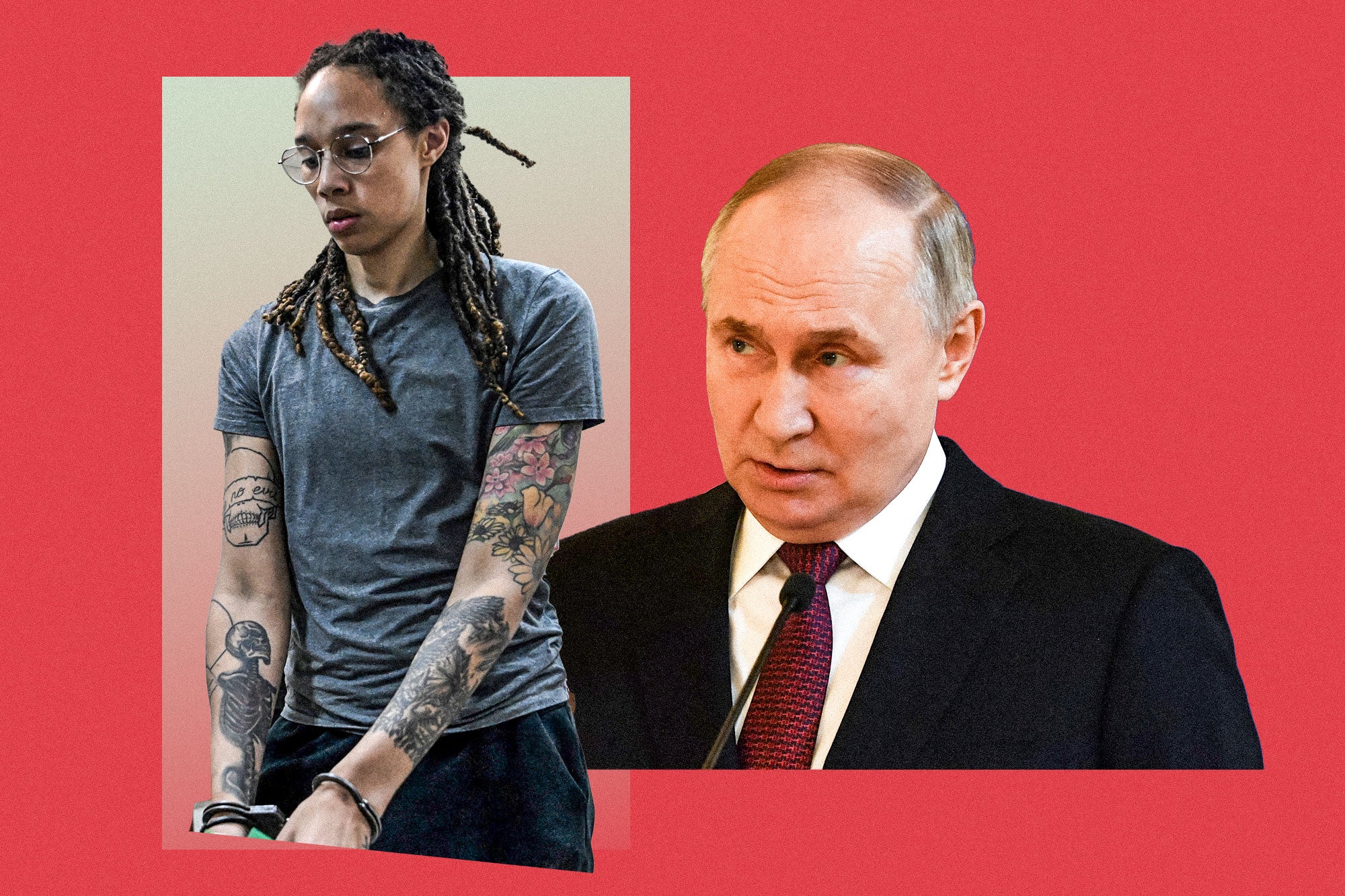Brittney Griner’s Memoir Reveals a Dark Underlying Truth About Life in Russia

Before she was imprisoned, she loved life in her “second home.” Then everything changed.
I would watch a show where Tucker Carlson interviews Brittney Griner. It might be fun to see the cable-TV star squirm before the openly lesbian 6-foot-7 basketball player as she schools America's leading Kremlin apologist on the realities of Vladimir Putin’s Russia that he missed during his slack-jawed tour of Moscow’s lavish subway stations and grocery stores. At one point in Coming Home, Griner’s new memoir of her forced stay in Russia for most of 2022, the nine-time WNBA All-Star and two-time Olympic gold medalist quotes Nelson Mandela’s words: “No one truly knows a nation until one has been inside its jails.” By that measure, Griner knows Russia as well as almost any American. Mandela’s remark appears as the epigraph for a chapter titled “Slave Camp,” which aptly describes the prison where Griner spent most of her 293 days in Russian lockups for the crime of accidentally bringing into the country two vape pens containing a total of 0.7 grams of medically prescribed cannabis—which prosecutors characterized as a “significant amount of narcotics.”She later learned that, in half of Russia’s 36 trials that year for the same crime, the defendants received suspended sentences. But Griner had the misfortune of being sniffed out by airport security dogs two weeks before Putin invaded Ukraine. By the time her trial came up, she “wasn’t just another prisoner,” as she puts it, but a “chess piece in a showdown between superpowers.” Where usually some deal is worked out with a local official, Griner’s case “was already at the Kremlin.” The Biden administration formally declared her case one of “wrongful detention,” meaning it was put in the hands of a State Department office authorized to bargain with foreign governments for an American citizen’s release. Griner’s Russian lawyer (a decent young man who spoke English well and loved rock ’n’ roll) urged her to plead guilty—Putin wouldn’t consider her release if she argued that his henchmen were mistaken. So she did, while also insisting that she didn’t mean to bring drugs into the country. (She’d left the house in a hurry, without emptying her bag from a prior trip.) “Kissing the king’s ring,” she writes, “was my fastest way to freedom.” So she thought.
When the Russian plane carrying Griner to freedom touched down in Abu Dhabi, and she walked across the tarmac to board the American plane that would take her home, she crossed paths with Bout, walking in the opposite direction. The man whose nickname was “the merchant of death” nodded his greeting and shook her hand. “Unlike my bruised hands,” Griner noticed, “Viktor’s hands were soft. So were the creases on his face. He’d spent much of his sentence doing artwork, I’d heard—painting portraits of cats. I’d spent mine with a table saw.” It was the final, most ironic moment of sharp contrast between Griner’s homeland and the country of her imprisonment. The contrasts serve as a major theme of the memoir—a message she might not have noticed, much less highlighted, had she not been put through the Russian system.
Click Here For Complete Story
